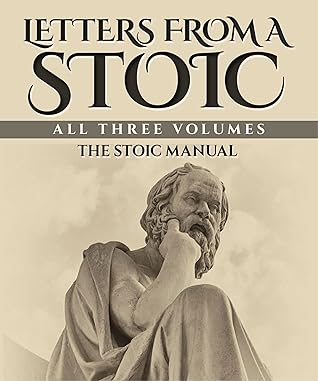More on this book
Community
Kindle Notes & Highlights
When a person spends all his time in foreign travel, he ends by having many acquaintances, but no friends.
Each day acquire something that will fortify you against poverty, against death, indeed against other misfortunes as well; and after you have run over many thoughts, select one to be thoroughly digested that day. This is my own custom; from the many things which I have read, I claim some one part for myself.
is, first, to have what is necessary, and, second, to have what is enough.
All you need to do is to advance; you will thus understand that some things are less to be dreaded, precisely because they inspire us with great fear.
"Poverty brought into conformity with the law of nature, is great wealth."
Let us try to maintain a higher standard of life than that of the multitude, but not a contrary standard; otherwise, we shall frighten away and repel the very persons whom we are trying to improve.
Philosophy calls for plain living, but not for penance; and we may perfectly well be plain and neat at the same time. This is the mean of which I approve; our life should observe a happy medium between the ways of a sage and the ways of the world at large; all men should admire it, but they should understand it also.
I find in the writings of our Hecato that the limiting of desires helps also to cure fears: "Cease to hope," he says, "and you will cease to fear."
In certain cases sick men are congratulated because they themselves have perceived that they are sick.
"What progress, you ask, have I made? I have begun to be a friend to myself."
Many men praise you; but have you any reason for being pleased with yourself, if you are a person whom the many can understand? Your good qualities should face inwards.
The body should be treated more rigorously, that it may not be disobedient to the mind. Eat merely to relieve your hunger; drink merely to quench your thirst; dress merely to keep out the cold; house yourself merely as a protection against personal discomfort.
"If you would enjoy real freedom, you must be the slave of Philosophy."
In this sense the wise man is self-sufficient, that he can do without friends, not that he desires to do without them. When I say "can," I mean this: he endures the loss of a friend with equanimity.
Attalus used to say: "It is more pleasant to make than to keep a friend, as it is more pleasant to the artist to paint than to have finished painting."
When one is busy and absorbed in one's work, the very absorption affords great delight; but when one has withdrawn one's hand from the completed masterpiece, the pleasure is not so keen. Henceforth it is the fruits of his art that he enjoys; it was the art itself that he enjoyed while he was painting. In the case of our children, their young manhood yields the more abundant fruits, but their infancy was sweeter.
Pure love, careless of all other things, kindles the soul with desire for the beautiful object, not without the hope of a return of the affection.
the wise man is sufficient unto himself for a happy existence, but not for mere existence. For he needs many helps towards mere existence; but for a happy existence he needs only a sound and upright soul, one that despises Fortune.
We marvel at certain animals because they can pass through fire and suffer no bodily harm; but how much more marvellous is a man who has marched forth unhurt and unscathed through fire and sword and devastation!
Unblest is he who thinks himself unblest.


